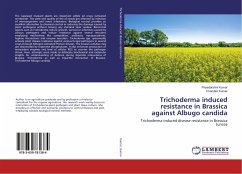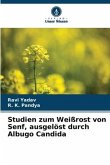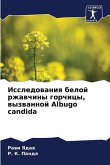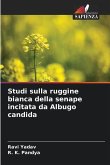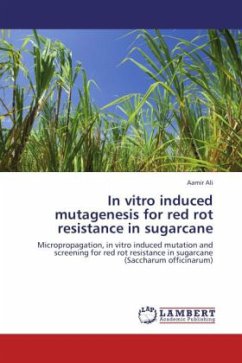The rapeseed mustard plants are important edible oil crops cultivated worldwide. The yield and quality of the oil seeds get affected by infection of microorganisms and insect infestation. Biological control provides an excellent alternative to chemical control in reducing the damage caused by plant pathogens without leaving any chemical toxic residue. Biocontrol agents such as Trichoderma reduce growth, survival or infections caused by various pathogens and induce resistance against several intruders employing mechanisms like competition, antibiosis, mycoparasitisms, hyphae interactions and enzyme secretion. Trichoderma spp. systemically activate plant disease resistance against various fungal pathogens in several crops through Mitogen-Activated Protein Kinases. The kinases activities may get deactivated by respective phosphatases. It also enhances production of antioxidant enzymes and level of cellular ROS to counter the pathogen attack. Here, attempts were made to delineate biochemical and molecular insights for understanding of defence during bipartite interactions of Brassica- Trichoderma as well as tripartite interaction of Brassica- Trichoderma-Albugo candida.
Bitte wählen Sie Ihr Anliegen aus.
Rechnungen
Retourenschein anfordern
Bestellstatus
Storno

